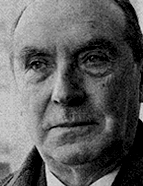

This was the beginning of a controversy that continued in 1931 when Lapa published two highly critical articles on Fonética Portuguesa [Portuguese Phonetics], Coimbra, 1929, a book by Oliveira Guimarães (criticism presented with the “blunt honesty” of an effort against the “fluttering of extremely superficial erudition” (Lapa, Miscelânea de Língua… [Miscellanea of Language…], 1982, 342). As a result of this controversy, Lapa advocated the academic specialisation of knowledge.
In 1931, he resumed his position as contract assistant professor and in the following year became co-founder of the Centro de Estudos Filológicos [Centre for Philological Studies] (today Centro de Linguística da Universidade de Lisboa [Centre of Linguistics of the University of Lisbon]). In early 1933, the bureaucracy of the Tribunal de Contas [Court of Auditors] (Diogo, Manuel Rodrigues Lapa. Fotobiografia [Manuel Rodrigues Lapa. Photobiography], 1997, 49) did not permit renewal of the contract with Lapa, who had not been paid since October of the previous year; he was dismissed by the government that very same year on account of his article in Seara Nova, A Política do Idioma e as Universidades [The Language Policy and Universities]: “our University is a broken mechanism which will either be fixed shortly by replacing a great number of its parts, or must forever be cast aside as useless and bothersome” (Lapa, As minhas razões [My Reasons], 1983, 51) [Seara Nova, 341, 1933, 67-76; conference held on the premises of “Ilustração Portuguesa” [“Portuguese Illustration”], on 15th February 1933 and again in Coimbra on 30th March 1933 in the Associação dos Artistas [Artists Association].
In the same year, Lapa submitted his work entitled Livro de Falcoaria de Pero Menino [The Book of Falconry of Pero Menino] (Coimbra, Imprensa da Universidade [University Press], 1931) to apply for the position of tenured assistant professor and was approved unanimously. Nevertheless, two years later a decree issued by Salazar’s government ordered his mandatory dismissal from public employment.
His political opposition to the regime became increasingly apparent thenceforth, although the first relevant signs date back to 1918, when he was a member of the board of the Associação Académica da Faculdade de Letras [Student Association of the Faculty of Arts]. It is worth noting that, in the wake of several student claims,a student strike was held between May and September. Almost thirty years later, his opposition to the regime would again be brought to the forefront with his endorsement of presidential candidate, General Norton de Matos.
